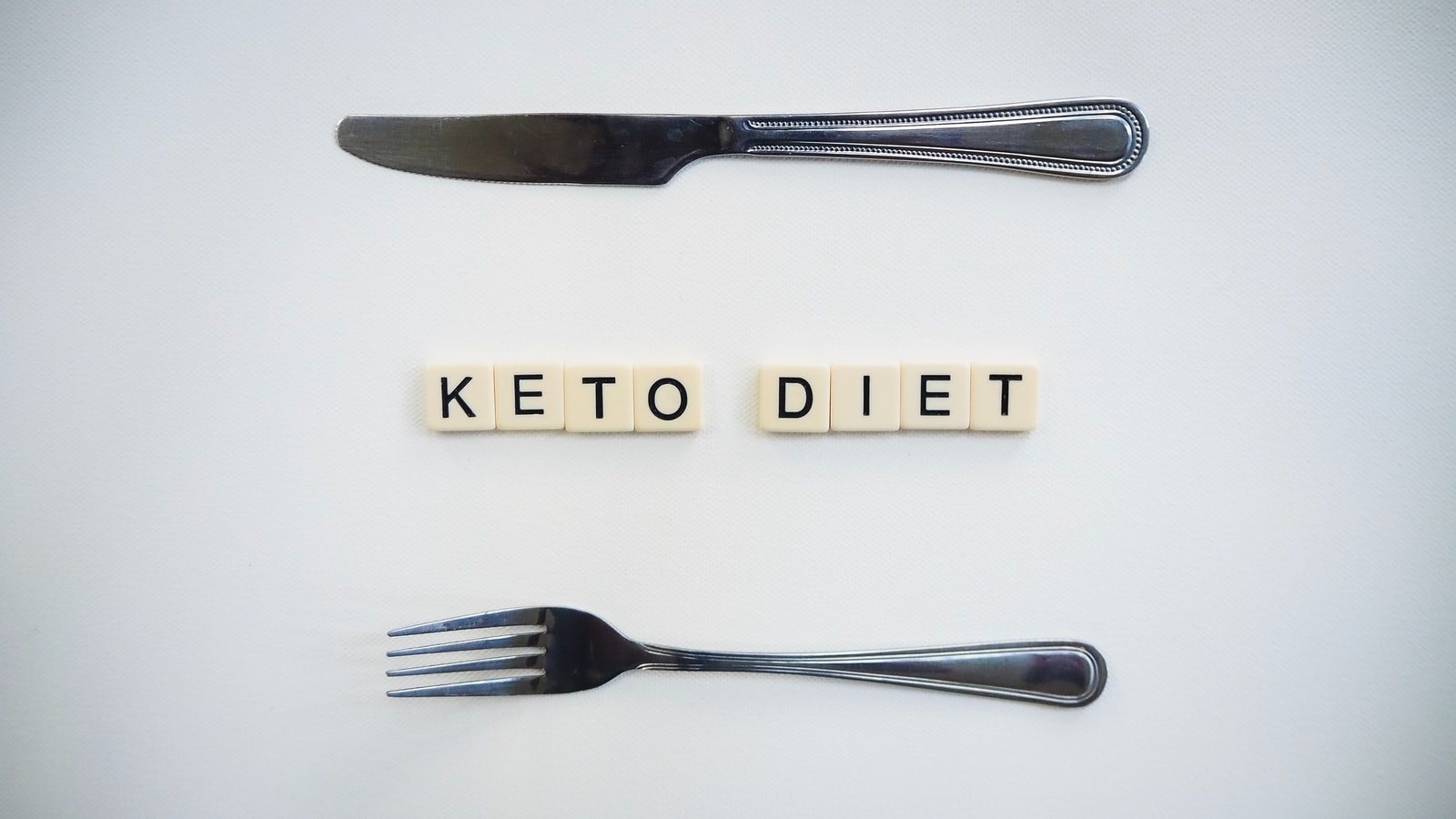Do you ever get overwhelmed by all the nutrition advice out there? It can be hard to cut through the hype and figure out what advice is backed by science. To help you make sense of it all, we’ve created an article packed full of delicious nourishing facts. We’ll be unpacking the myths about food and nutrition and offering a healthy dose of truth – so you can make informed decisions about what to put on your plate!
My Contents
- 1. Superfood Secrets: Unraveling the Nutritional Puzzle
- 2. Banishing Nutrition Bogeymen: Examining the Myths and Facts
- 3. Eating Your Way to Health: Uncovering Unusual Superfoods
- 4. Broadcast Your Diet: Exploring the Best Nutrients for Your Body
- 5. “Eat Your Greens”: The Power of Well-Balanced Nutrition
- My Diet Answers

1. Superfood Secrets: Unraveling the Nutritional Puzzle
Unlocking the Power of Superfoods
Millenia ago, people recognized the power of various plants, herbs, and fungi to help fight disease and heal wounds. Years later, modern science is finally catching up, and now, a whole host of superfoods have joined the arsenal of nutritional ammunition. Here, we’ll dive deep into the secrets of these powerhouse healers, giving you the 411 on their amazing benefits.
- Goji Berries: High in antioxidants and vitamin C, Goji Berries are said to have anti-aging effects, improve vision, boost energy levels, and help support healthy skin.
- Chia Seeds: Packed with protein, these teeny tiny seeds are said to help bolster immunity, increase energy, and reduce inflammation. Keep a jar of these bubbly bad boys in your refrigerator and add a spoonful to your smoothie or yogurt each morning.
- Turmeric: This vibrant yellow root is renowned for its anti-inflammatory powers, and is also said to help reduce joint pain, regulate blood sugar, and support digestion.
With these superfoods in your diet, you can help your body protect itself from common health issues. Not only that, but when you use healthy ingredients like these in your cooking, you’re also ensuring your food is flavourful and incredibly satisfying. So the next time you’re in the grocery store, grab some of these nutritional powerhouses and make them your secret weapon against dis-ease.
2. Banishing Nutrition Bogeymen: Examining the Myths and Facts
You’ve probably heard a lot of nutrition advice, and it can be confusing to sort out the myths from the facts. Nutrition focuses on both healthy and unhealthy foods, and many “beliefs” about it are just that – beliefs. Not facts. Let’s take a look at some of the most common nutrition bogeymen and check the facts.
Take dairy for example. Milk, cheese, and yogurt contain calcium and vitamin D, both essential for healthy bones. Logically, many assume that dairy consumption is essential for bone health. But the truth is, you can get all the essential nutrients from plant-based sources. Broccoli and greens are excellent sources of calcium, and omega-3 fatty acids – from fish, or supplements – helps aid calcium absorption, making them just as good as dairy for bone health.
Carbohydrates, another pet bogeyman, are essential for a balanced diet. They provide fuel for your body and brain, yielding energy for physical activity and sustaining concentration. But, not all carbs are created equal. Refined, or processed carbs like white bread, sugary products and snacks provide little nutrition but many calories. Complex carbs such as fruit, vegetables, whole grains, nuts, nut butters and oats are all better sources of carbohydrates.
- Fruits and vegetables provide essential nutrients and minerals, plus the fiber needed to maintain good digestive health
- Lean proteins are an important source of energy and assist in the building and repair of body tissues
- Whole grains and healthy fats provide energy and help the body absorb vitamins and minerals
Good nutrition is about more than just avoiding the “not so healthy” options – it’s really about finding the right combination of foods that work for you, that make you feel energized and fuel your body with the key needed nutrients for optimal function. Choosing a variety of whole foods including lean proteins, lots of fruits and vegetables, and whole grains should be the goal.
3. Eating Your Way to Health: Uncovering Unusual Superfoods
If you’re looking for a way to boost your health and wellbeing, you may want to consider uncovering some unusual superfoods. These powerhouse ingredients can provide a host of health benefits, and some of them may surprise you!
Insects: Believe it or not, eating insects can be incredibly beneficial for your health. They are a great source of protein, essential vitamins and minerals, and fatty acids, making them an excellent addition to any diet. Not to mention, they have a remarkably low environmental impact in comparison to other forms of meat. So why not give toasted fried crickets, or even cricket protein powder, a try?
Algae: This sea vegetable may look strange, but it’s chocked full of vital nutrients such as Omega 3, iron, calcium, and Vitamin B12. It’s also great for regulating cholesterol levels, keeping your skin looking vibrant, and maintaining a healthy immune system. Popular choices include Spirulina, Chlorella, and Dulse. These can be easily added to smoothies or soups for a nutrition-packed power-up!
Herbal Tonics: Herbal tonics have been around for centuries to promote good health and vitality. Consider experimenting with homemade concoctions such as nettle and burdock root teas. These are known to contain beneficial antioxidants and help your body flush out toxins. Or why not try adding some medicinal herbs, like Tulsi or Ashwagandha, to your morning chai or matcha latte?
4. Broadcast Your Diet: Exploring the Best Nutrients for Your Body
Your body needs different types of foods to get the nutrients it needs for optimal health. Sometimes, eating a varied diet is challenging. That’s why it’s important to know what the best nutrients for your body are so you can make sure you’re giving yourself the right food and making good choices when it comes to nutrition. Here are some of the top nutrients you should bebroadcasting in your diet:
- Fiber: Fiber helps your body digest and process the food you eat, and it can also help lower your cholesterol level. It can be found in foods like fruits, veggies, legumes, and whole grains.
- Protein: Protein helps your body build and repair muscles, and it can also reduce feelings of hunger. Good sources of protein include lean meats, legumes, eggs, and fish.
- Healthy Fats: Healthy fats like omega-3 and monounsaturated fats provide essential fatty acids that your body needs for various functions, as well as contributing to feelings of satisfaction after eating.
In addition to these, vitamins and minerals are also important components of your diet. Vitamin A helps your eyes see better, Vitamin C helps your body fight off bacteria and viruses, and Calcium helps keep your bones strong. These and other essential nutrients are essential for keeping your body healthy and functioning properly.
By broadcasting the right nutrients for your body, you can help support your health and prevent illnesses like obesity or heart disease. Eating a balanced diet with plenty of fresh fruits and vegetables, lean proteins, and healthy fats is the key to success – and to a healthy, happy life.
5. “Eat Your Greens”: The Power of Well-Balanced Nutrition
Eating your greens should be a top priority in your diet. Leafy greens like spinach, chard, romaine, kale, and arugula are pillars of a well-balanced nutrition plan. They contain many essential nutrients, and provide your body with antioxidants and micronutrients- vitamins, minerals, phytonutrients, and fiber that all play a role in keeping your body healthy.
These nutrient-dense vegetables are also a great source of many vitamins and minerals. Iron, magnesium, calcium, potassium, zinc, and phosphorous are just some of the essential minerals found in leafy greens. They are also an excellent source of vitamins A, B6, and E.
It’s important to note that the more leafy greens you incorporate into your diet, the more health benefits you will receive. Some of the key benefits of eating your greens include:
- Boosting your immune system
- Lowering cholesterol
- Improving bone health
- Increased energy levels
So, make sure to add more leafy greens to your diet and reap the rewards of a nutritious, balanced nutrition plan. Your body will thank you!
My Diet Answers
Q: What inspired you to write about food and nutrition myths?
A: I’m a firm believer that knowledge is power, and understanding what we consume and why empowers us to make better decisions about our health. I wanted to share factual information about food and nutrition in an accessible format so that people could get a better understanding of food and nutrition, dispel any misguided information, and make healthier choices.
Q: What nutrition myths did you debunk in your article?
A: I debunked several nutrition myths, such as that all fats are bad, that processed food is unhealthy, that you can’t have a nutrient-rich diet on a budget, that carbohydrates should be avoided, and that “superfoods” are superior to other foods.
Q: What would you say to people who are feeling overwhelmed by the amount of nutrition information out there?
A: I totally understand how overwhelming it can feel. Start with gaining knowledge from reputable sources and public health authorities, such as government websites, credible health organizations and trusted nutrition professionals. Focus on the basics and remember that food is about more than just nutrition.
It’s amazing to see how food and nutrition myth can be so ingrained in the culture, but take heart—the facts are here to set us on the right path. By learning more about what’s actually in the food we eat, and understanding what nourishes us, we can enjoy the deliciousness without the worry.
Bon appétit!










